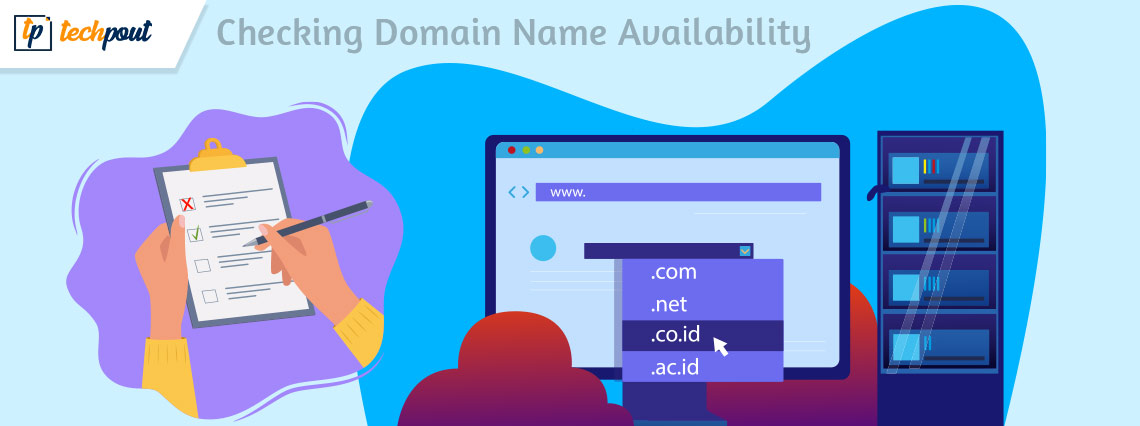A Beginner’s Guide To Checking Domain Name Availability

Choosing the domain name for your website or blog is a pivotal part of what would make your website or blog successful. In doing this, you should consider a few things before settling on a specific domain name, especially if you’re doing it for the first time. For one, you should consider its potential to be marketed as a brand to households if you’re selling goods or establish its credibility by offering services.
If you haven’t decided what to call your website, you might want to check a few domain name generator sites to give you some ideas. But if you’re already set on a domain name, you can check domain with IONOS and other similar domain name checker sites and registries. Here are a few things that you should consider as a beginner’s guide to checking domain name availability:
1. Look For A Reliable Domain Name Checker And Registry
One of the first things you should do when considering putting up your website or getting your domain name is to look for a reliable site that can check for domain name availability. Numerous websites generate domain names and check for domain name availability. Most of these websites also offer domain name registration and hosting services.
Multiple websites now offer domain name checking and registration services with the digital transformation trend to set up business in the cloud. You can even choose from a host of additional and advanced features and functionalities, but most of these would cost you add-on fees. Here are a few other things that you should keep in mind when checking for the availability of a domain name:
- Always go for the .com domain if it’s still available.
- Avoid using domain names that are too similar to established trade names or famous brand names. Most companies will work hard to protect their brand names, ready to go to court to enforce their rights. This would mean early trouble, and you don’t want that.
- Know whether their site offers top-level domain names and premium domains, so you can also have this option.
- Look over the services and features of their domain name registration and hosting packages.
Also Read: Best Domain Registrars
2. Check If You Can Still Use Its Social Media Handles
When you’re thinking of putting up your business presence online or getting your domain name, you should also check if you can still get the social media handles that would contain the domain name that you have in mind. This is essential in checking domain name availability because of the crucial role of digital marketing in the success of a website or blog.
With the continuing increase of internet penetration and use in most countries, more people spend time online with their eyes glued to their laptop screens, tablets, or smartphones. This means that most people who could buy the goods or services you’re selling spend much of their time on the internet, regardless of the market segment you’re targeting.
If you want to reach out to them and be able to get their attention, then you know that you have a better chance of doing it by getting in front and center of their computer or phone screens. To do this, you should be able to use all the social media platforms that can help you reach out to your target audience.
It will help if your domain name is the same as your social media handles, as this would avoid confusion and enhance name recall for your products and brand names. If you use a different social media page name, for instance, the buyer clicks your call-to-action, and they reach a website with another domain name.
3. Do You Have A Country-Specific Audience In Mind
One of the first things you must consider when considering putting up your website or blog and checking domain name availability is whether or not you have a specific country audience in mind. To find the answer to this, you can decide whether you want your website or blog to reach or speak to an audience in a specific country.
This can come in other variations. For instance, you can ask yourself whether you want your website or blog to reach out or speak to an audience who speaks the same language or have the same historical ties or cultural values, even though they may be located in different states or countries.
For example, you might be thinking of creating a website to sell goods to all English-speaking people regardless of their geographical location or country of residence. Your audience can be residing in the United States or Canada or vacationing in the United Kingdom.
They could also be in Australia or New Zealand, whether nationals or permanent residents, as long as they speak English. You can weigh the same things for Chinese-speaking, Indian-speaking, Spanish-speaking, and French-speaking peoples, and so on.
4. Is It Better To Go Keyword Domain Or Branded Domain
Another thing that you should consider when setting up your website or looking for the most suitable and available domain name is whether you should go for a keyword or domain name that carries your brand name.
One of the best ways to settle this question is to ask whether your website will be a niche website or blog or whether it will be a website for your company. If you’re a blogger and you’ve already started a blog with a niche website but still have it on free hosting, it’s more likely that the keyword domain name would work best for your niche website.
But if you already have an established small business or company with a few brand names or product lines, then you should build on this and use your company or brand name as your domain name. This would align your trademark and brand name rights with your domain name rights in the virtual realm.
Also Read: Best Tips To Choose A Perfect Domain Name For Your Business
Conclusion
Setting up your website or blog with a registered domain name isn’t that hard. Still, you have to keep in mind several things to avoid complications with other things related to your digital transformation and digital marketing efforts later on.
It would help if you looked for a reliable domain name checker and registry site to do this. At the same time, you should survey whether you can still get and use the social media handles of the domain name you have in mind. It would be best if you also considered your target audience and whether you’re setting up your brand or trying to develop a niche community.


